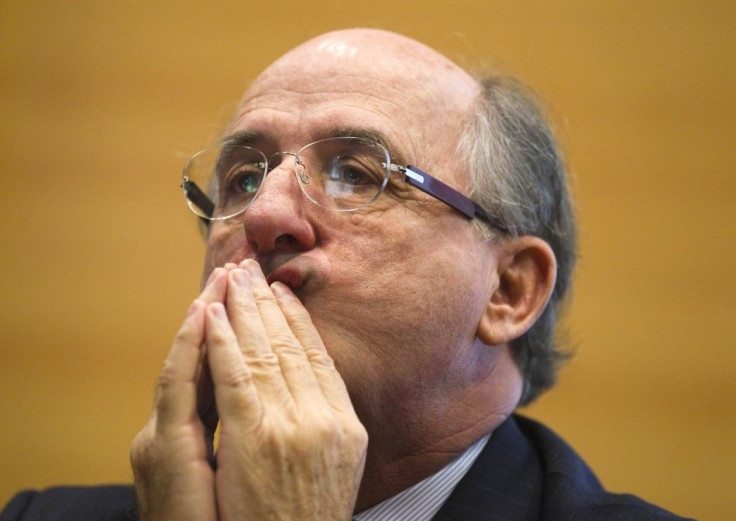Argentina's Plan To Nationalize Spain's YPF Kills Sinopec's Plan To Buy It For $15B

Argentina's plan to seize control of oil and gas company YPF SA from Spain's Repsol YPF has killed a tentative deal by China's Sinopec Group to buy the company. The move has drawn international criticism, and Repsol's shares have fallen more than 6 percent.
Chinese oil giant Sinopec had reached a $15 billion nonbinding agreement to buy YPF, China's Caixin.com reported. It's unlikely such a deal would move forward unless there is a special relationship with the Argentinian government, a mergers and acquisitions banker who has advised Chinese state-run oil companies told Reuters on Wednesday.
Repsol was in late stage talks with Sinopec right up to Monday's announcement in Buenos Aires that Argentine President Cristina Fernandez de Kirchner was sending a bill to federal lawmakers to nationalize YPF, the Financial Times said Wednesday.
Kirchner rejected Repsol's $10.5 billion valuation of its stake. Repsol has pledged to seek arbitration and restitution should the appropriation plan move forward as expected.
We have received two or three good offers [for YPF], Repsol Chairman and CEO Antonio Brufau said in the Financial Times, adding that at least one of the offers was very serious. He didn't name the bidders.
Repsol shares fell 6.2 percent to 15.40 euros in Madrid on Wednesday and its share price has shed more than 11.5 percent since the start of the week.
Meanwhile, international outrage has flared over Kirchner's plans.
Spanish Industry Minister Jose Manuel Soria expressed concern that other top Spanish companies could suffer similar fates, the Wall Street Journal said. U.K. Foreign Secretary William Hague expressed concern over the action, adding that it would damage Argentina's economy by reducing its attractiveness to international investors.
Speaking from a meeting of the World Economic Forum in Puerto Vallarta, Mexico, Spanish Prime Minister Mariano Rajoy said the action would harm Argentina's international reputation.
Even Mexican President Felipe Calderon -- whose own country is struggling with a rigid state-owned oil monopoly -- condemned the move. The Associated Press quoted him as saying that the road to economic growth and development is not the road of expropriations.
Petroleos Mexicanos (Pemex), the Mexican oil giant, owns 10 percent of Repsol and so stands to lose money if Argentina nationalizes YPF.
Sergio Berensztein, who runs the Buenos Aires consulting firm Poliarquia, said appropriating privately held property sends a terrible image of Argentina.
I don't think Argentina has a socialist ideology like Chavez's Venezuela but it is evidently becoming more radicalized and in both cases the state will continue to intervene in companies, Berensztein told the Associated Press.
© Copyright IBTimes 2025. All rights reserved.






















